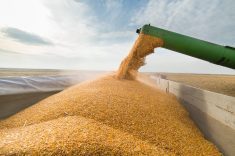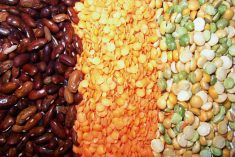The import duties Canadian food processors pay to get apple juice concentrate are to be axed by the federal government.
Finance Minister Jim Flaherty on Sunday announced shipments of apple juice concentrate from foreign suppliers are on a list of 70 items for which the tariffs will now be eliminated, to the benefit of Canadian industrial manufacturers.
Specifics on the tariff cuts aren’t yet available but were to be published next Wednesday in the government’s Canada Gazette. A partial list of the imported items covered in Sunday’s announcement includes:
Read Also

Senft to step down as CEO of Seeds Canada
Barry Senft, the founding CEO of the five-year-old Seeds Canada organization is stepping down as of January 2026.
- "other mixtures used in manufacturing beverages,"
- rubber and plastic conveyor belts,
- "certain parts to make transportation equipment" such as trailers, and
- the gelatine capsules used to make pharmaceuticals.
Food Processors of Canada, an Ottawa-based trade association, hailed the move in a separate release Tuesday, saying the cut will help its processor members reduce their ingredient costs.
The decision also "levels the playing field so that Canadian processors can better compete against imported finished product," the group said.
The processors stressed that the end of duties on apple juice concentrate will have "no impact" on Canada’s apple growers.
Canadian processors, the group said, will still continue to use Canadian apples to make "single-strength" apple juice as well as applesauce and other products.
"Eliminating the tariff will reduce consumer prices and keep jobs in Canada," association president Christopher Kyte said, calling the tariff a tax on consumers as well as businesses.
"By lowering costs for these businesses, we are enhancing their ability to compete in domestic and foreign markets and helping them invest and create jobs here at home," Flaherty said of the manufacturers using the imported goods.
In all, the tariff cuts announced Sunday are expected to save manufacturers and processors about $32 million per year.



















